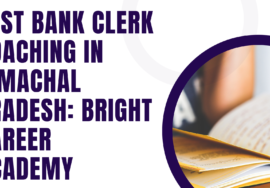
Banking Course: A Complete Guide to Successful in Banking
A course in banking is vital for those who want to make an enviable career in the financial industry. The courses in banking provide a thorough understanding of bank operations, including risk management and digital banking solutions. In this blog, we’ll look at different classes in banking, their benefits, career opportunities, and the knowledge needed to excel in banking.
Why Pursue a Banking Course?

A bank course provides individuals with expertise in the banking industry’s financial management process, regulations, and customer service. A few of the main reasons to enroll in the course in banking include:
- high-employment The banking sector has stable job opportunities and growth potential.
- Multiple Career Options A course in banking can lead to career opportunities in retail banking, corporate finance, investment banking, and even risk management.
- Skills Development Courses help improve analytical skills, financial understanding, and customer service skills.
- International Opportunities Banking is a universal industry that offers job opportunities across the globe.
Types of Banking Courses

- Undergraduate Courses in Banking
- Bachelor of Commerce (B.Com) in Banking and Finance
- Bachelor of Business Administration (BBA) in Banking and Insurance
- Bachelor of Economics, with Banking Specialization
- Postgraduate Courses in Banking
- Master of Business Administration (MBA) in Banking and Finance
- Master of Commerce (M.Com) in Banking
- Postgraduate Diploma in Banking and Financial Services
- Professional Banking Certifications
- Chartered Financial Analyst (CFA)
- Certified Financial Planner (CFP)
- Financial Risk Manager (FRM)
- Certified Banking & Credit Analyst (CBCA)
- Short-Term and Online Banking Courses
- Diploma in Banking and Finance
- Certificate Course in Retail Banking
- Online Courses on Fintech and Digital Banking
Key Subjects Covered in a Banking Course
A structured banking course that is well-structured offers a wide range of topics that include:
- The Principles of Banking Understanding the fundamental tasks and activities of banks.
- Finance Management Understanding investments, financial statements, and capital markets.
- Risk management in banking strategies is used to manage risks to credit and market and operational risks.
- Banking Regulations and Compliance Overview of the banking laws, RBI guidelines, and international banking regulations.
- Digital banking and Fintech Development of mobile banking, online banking, payments, and blockchain technologies.
- Customer Relationship Management (CRM): Strategies to provide banking customers with efficient support and complete satisfaction.
Career Opportunities After a Banking Course

After completing a banking education, students can look into various career options, including:
- “Bank Probationary Officer” (PO): Entry-level managerial position in the private and public sector banks.
- Financial Analyst: The process of analyzing financial data and making investment suggestions.
- Investment bankers assist companies in obtaining capital and facilitating mergers and acquisitions.
- Credit Analyst Analyzing the creditworthiness of the borrowers.
- Loan officer Processing and evaluating loans for both individuals and companies.
- Wealth Manager managing high-net-worth customers’ investment portfolios and financial plans.
Top Banking Exams for Career Advancement

Applicants must pass competitive examinations to get a job in the banking industry. The most well-known banking examinations include:
- IBPS Clerk and PO The process is run through the Institute of Banking Personnel Selection for banks in the public sector.
- SBI PO and Clerk State Bank of India’s hiring examinations for various bank roles.
- RBI Grade B Examination for recruitment at the Reserve Bank of India.
- NABARD Exam for jobs at the National Bank for Agriculture and Rural Development.
- SEBI Exam: for roles within the Securities and Exchange Board of India.
Skills Required to Succeed in Banking

A successful banker should learn the following skills:
- Analytics Skills: Ability to analyze the trends in the market and financial data.
- Numerical Expertise A solid math and statistics knowledge.
- Communication Skills: Effective written and verbal communication. Written communication skills to communicate with colleagues and customers.
- Ability to Solve Problems Fast decision-making and problem-solving in financial situations.
- Attention to the finer points of accuracy in financial transactions and the observance of regulations.
- Technical Skills: Experience with banks, banking software, and digital platforms for banking.
The Future of Banking Courses
The banking industry is constantly changing, and courses in banking are evolving to meet the latest trends, which include:
- Digital Transformation The courses currently concentrate on artificial intelligence, fintech, and blockchain in banking.
- Sustainable Banking focuses on ethical lending, sustainable finance, and corporate social accountability.
- Cybersecurity in banking The importance of data security and fraud prevention is growing.
- Personalized Banking courses that incorporate AI-driven banking services as well as customer analytics.
Conclusion
A course in banking is an excellent way to begin a lucrative career in the financial sector. Through specialized education, industry knowledge, and practical experience, future professionals can find lucrative jobs in financial institutions, banks, and investment firms. As the banking industry grows, skilled professionals will be highly sought-after. Join a bank course now and begin your journey to having a rewarding profession in finance.
For professional guidance and career advice, stay connected with Bright Career Academy!
Q.1 Which is the most effective training in banking for novices?
Ans-The Diploma of Banking and Finance or a B.Com in Banking and Finance is ideal for students who want to learn.
Q.2 Which of the banking courses is the most lucrative for earning potential?
Ans- An MBA or a master’s degree in banking and finance or professional certificates such as CFA and FRM provide excellent salary opportunities.
Q.3 Are banking courses available online?
Ans- Many platforms, like Bright Career Academy, provide online banking courses.
Q.4 What time will it take for you to complete your bank course successfully?
Ans- Diploma programs last 6-12 months, bachelor’s degrees last three years, while master’s degrees can take between 1 to 2 years.
Q.5 Which bank exam is the most easy to pass?
Ans- The IBPS Clerk test is considered one of the most easy banking tests.
Q.6 Do I qualify for employment in banking without a college degree?
Ans- Some entry-level positions, such as bank assistants, can be found with no degree required. However, higher-level positions require a formal education.
Q.7 How old is it? Minimum age for exams in banking?
Ans- Most bank exams have a limit of 20-30, with some exceptions for reserved categories.
Q.8 Do Banking courses require strong math abilities?
Ans- Basic mathematical skills are essential. However, most courses provide the opportunity to develop these abilities.
Q.9 What are the chances of a job after you have completed a bank course?
Ans- Employment opportunities include retail banking and investment banking risk management and financial analysis.
Q.10 Are there banking courses offered by the government? Training courses?
Ans- Yes, institutions like NIBM and IIBF offer government-recognized banking courses.









